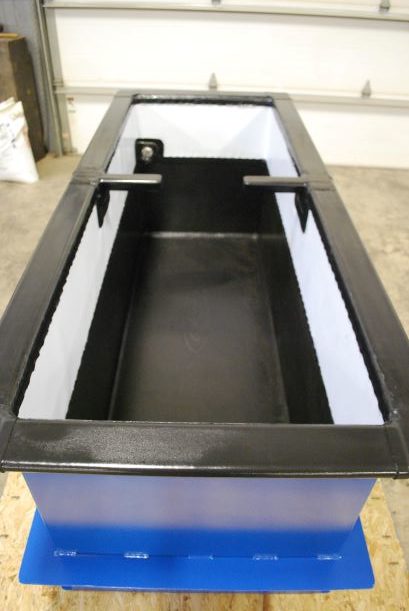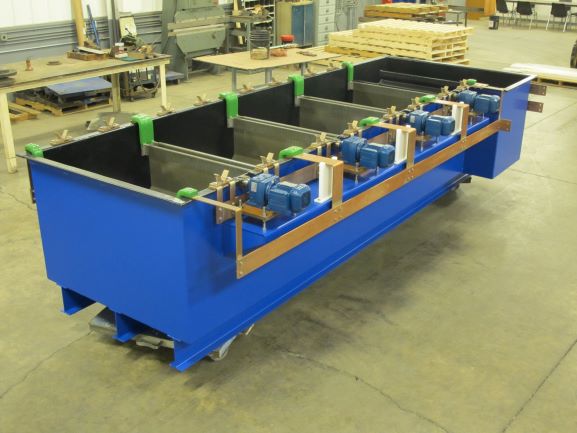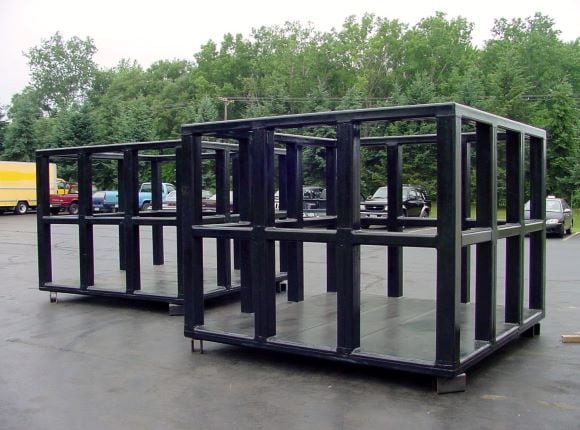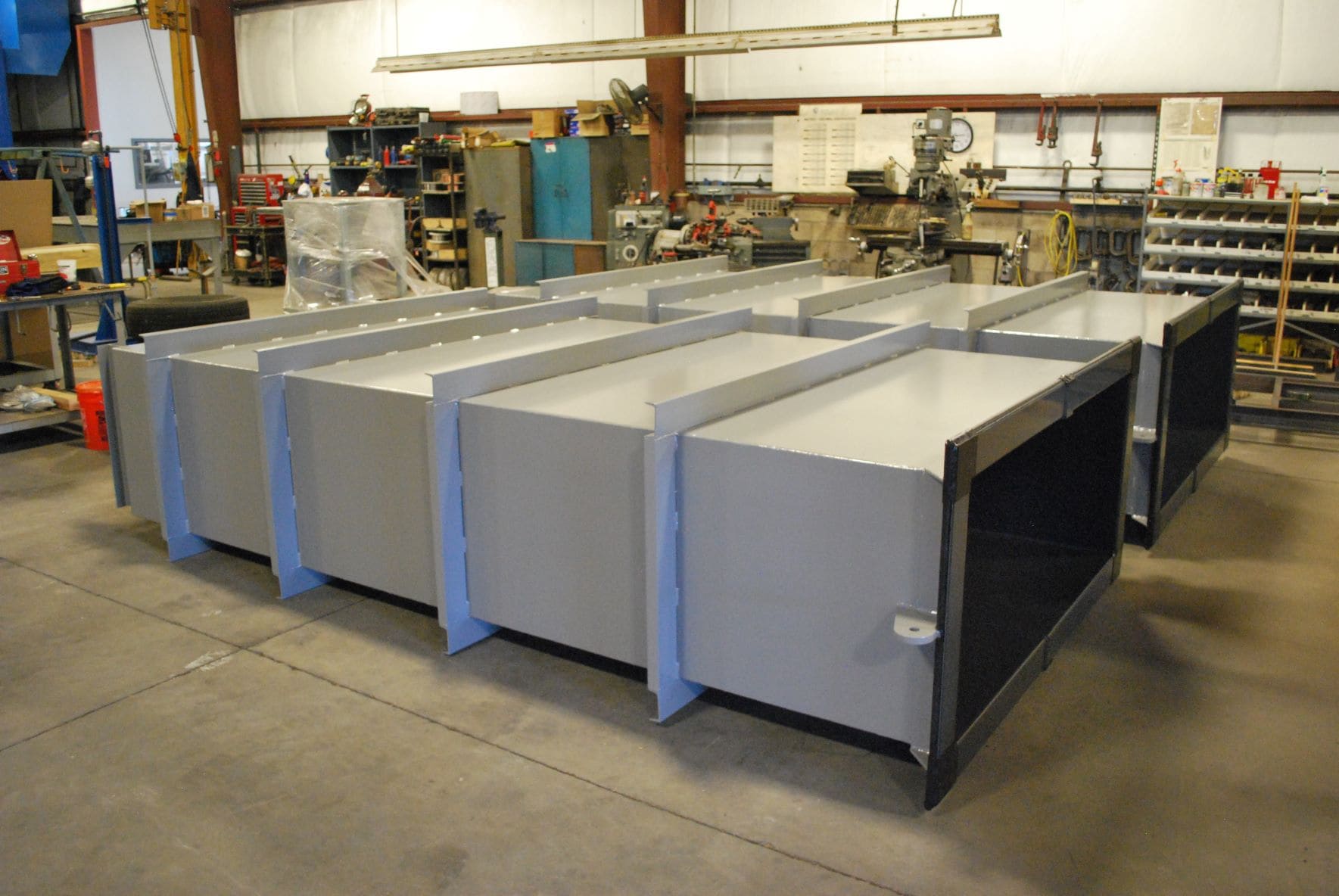Koroseal Lining Services
PKG Equipment Inc. is a recommended Koroseal lining applicator. Koroseal linings are thermoplastic PVC that provide excellent resistance to corrosive chemicals which can’t be handled by rubber. Koroseal is flexible & is bonded to steel & concrete bodies in a wide range of sizes & shapes. The material has good tear, abrasion, electrical & sunlight resistance. Koroseal lined tanks are spark tested for leaks before being put into service. They may be spark tested any time after as well to test for leaks.
Koroseal will typically soften at temperatures above 150° F. Operation at higher temperatures can be accomplished through use of brick sheathing for both thermal & physical protection. Typically, with chrome plating, a PVC or PTFE bumper is added to the top 1′ – 2′ of tanks for additional protection at liquid level.
Koroseal linings are not recommended for organic chemicals containing chlorine or nitrogen groups, glacial acetic acid, acid anhydrides, ketones, lacquer solvents & petroleum fractions lighter than No. 1 fuel oil, however there are some exceptions.
We typically use Koroseal to line the interior of tanks (usually chrome plating tanks), but tank frames can be wrapped in Koroseal as well for corrosion resistance.
Capabilities - Koroseal Lining Services
- Material
-
- Thermoplastic PVC available in standard and high performance versions
- Resistances
-
- Corrosive chemicals
- Electrical
- Sunlight
- Abrasion
- Tear
- Substrate
-
- Steel
- Concrete
- Lining Thickness
-
- Typically use 3/16″ and 3/32″
- Temperature
-
- Standard Koroseal
- Up to 150 °F depending on the chemical in contact w/ the lining
- High Performance Koroseal
- Infrequent process temperature excursions to 165° F can be tolerated without causing reduction in service life depending on the chemical in contact w/ the lining
- Standard Koroseal
- Testing
-
- Spark test for leaks
- Intended Applications
-
- Chrome plating tanks and other chemical tanks
- Tank frames
- Containment pits






